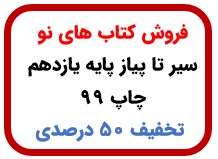Testing the effects of e-mailed personalized feedback on risky alcohol use among college students
سه شنبه , 15 مرداد 1392 ساعت 02:48 دسته بندی :دانلود مقاله :
Testing the effects of e-mailed personalized feedback on risky alcohol use among college students 2013
نویسندگان :
Zachary E. Bryant , Amber M. Henslee , Christopher J. Correia
چکیده :
Objective: Although research utilizing the Internet to intervene with college student drinkers is growing, this
study is the first to investigate the use of a theoretically-based and empirically supported personalized feedback
form delivered via a single e-mail to college students.
Method: Students () completed measures of their alcohol use, related consequences, and peer
perceptions at baseline and 6 weeks after the intervention. Students were randomly assigned to receive
either e-mailed personalized feedback or e-mailed generic feedback.
Results: Students who received e-mailed personalized feedback reported consuming significantly fewer
drinks in a given week, as well as a fewer number of days being drunk in the previous 30 days. They also
exhibited a significant reduction in the number of days they perceived their peers to have drunk alcohol
and in the amount of alcohol they perceived their peers to consume per drinking occasion.
Conclusion: e-Mailed personalized feedback appears to help students become more aware of normative
drinking behavior and reduce the quantity of alcohol they consume. Furthermore, e-mailed personalized
feedback may be a cost-effective manner in which to intervene with college student drinkers
?> بانک مقالات روانشناسی , دانلود مقاله روانشناسیمطالب مرتبط :
Motivations to quit cannabis use in an adult non-treatment sample
Prevention and treatment of college student drug use: A review of the literature
The cultural theory and model of suicide
Infanticide/neonaticide: The outlier situation in the United States
Testing the effects of e-mailed personalized feedback on risky alcohol use among college students
Translating Research Into Practice: Targeting Negative Thinking as a Modifiable Risk Factor for Depression Prevention in the College Student Population
How does the legal framework protect victims of dowry and domestic violence in India? A critical review
Walking down memory lane: Where walkers look as they descend stairs provides hints about how they control their walking behavior
Depression in Non-Korean Women Residing in South Korea Following Marriage to Korean Men
Graffiti on the Great Plains: A Social Reaction to the Red River Valley Flood of 19971
Youth gang affiliation, violence, and criminal activities: A review of motivational, risk, and protective factors
The antisocial phenomenon in adolescence: What is literature telling us?
Feasibility, Acceptability, and Effects of Gentle Hatha Yoga for Women With Major Depression: Findings From a Randomized Controlled Mixed-Methods Study
Psychic family violence and pathological jealousy with tragic consequences: Homicide
Smoking and social anxiety: The roles of gender and smoking motives
Family smoking history moderates the effect of expectancies on smoking initiation in college students
Immediate and six-month effects of Project EX Russia: A smoking cessation intervention pilot program
The Army National Guard in OIF/OEF: Relationships among combat exposure, postdeployment stressors, social support, and risk behaviors




